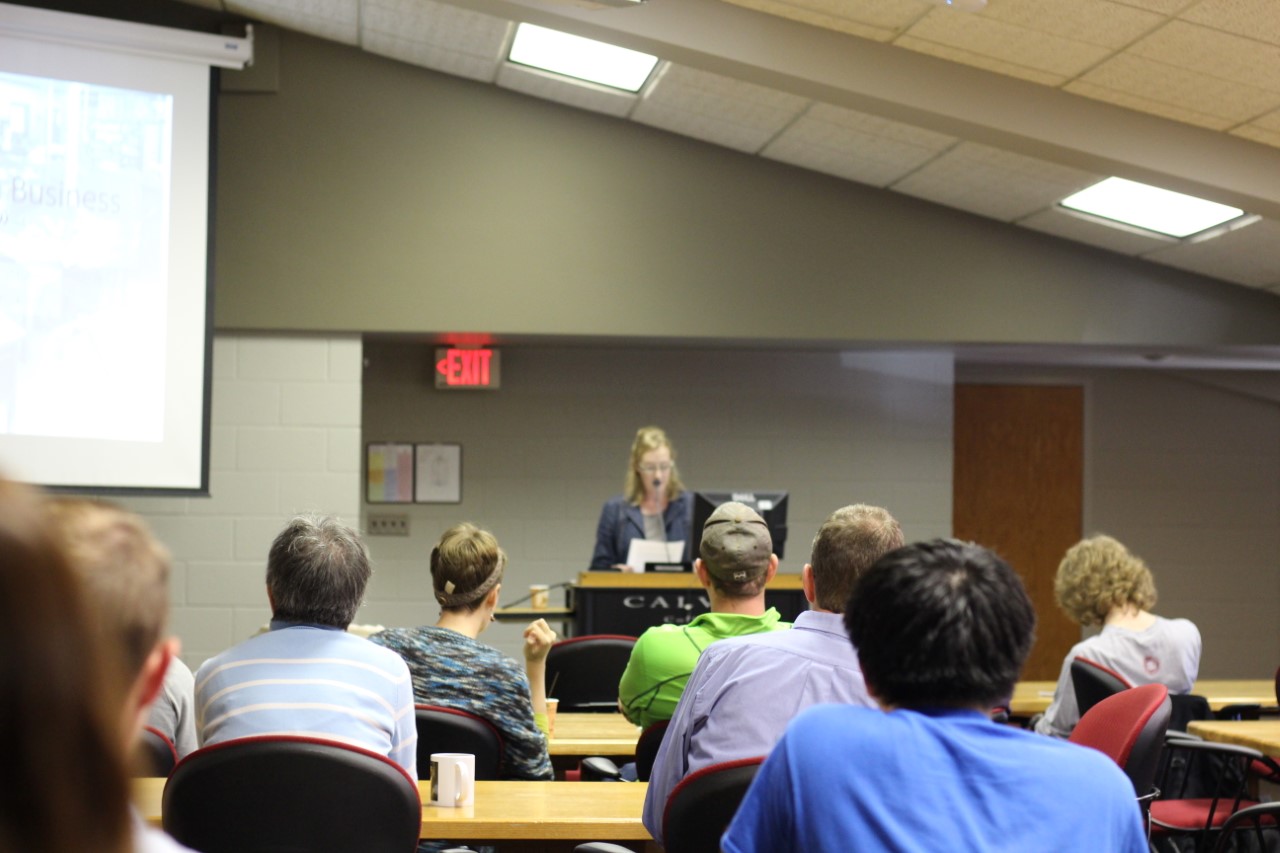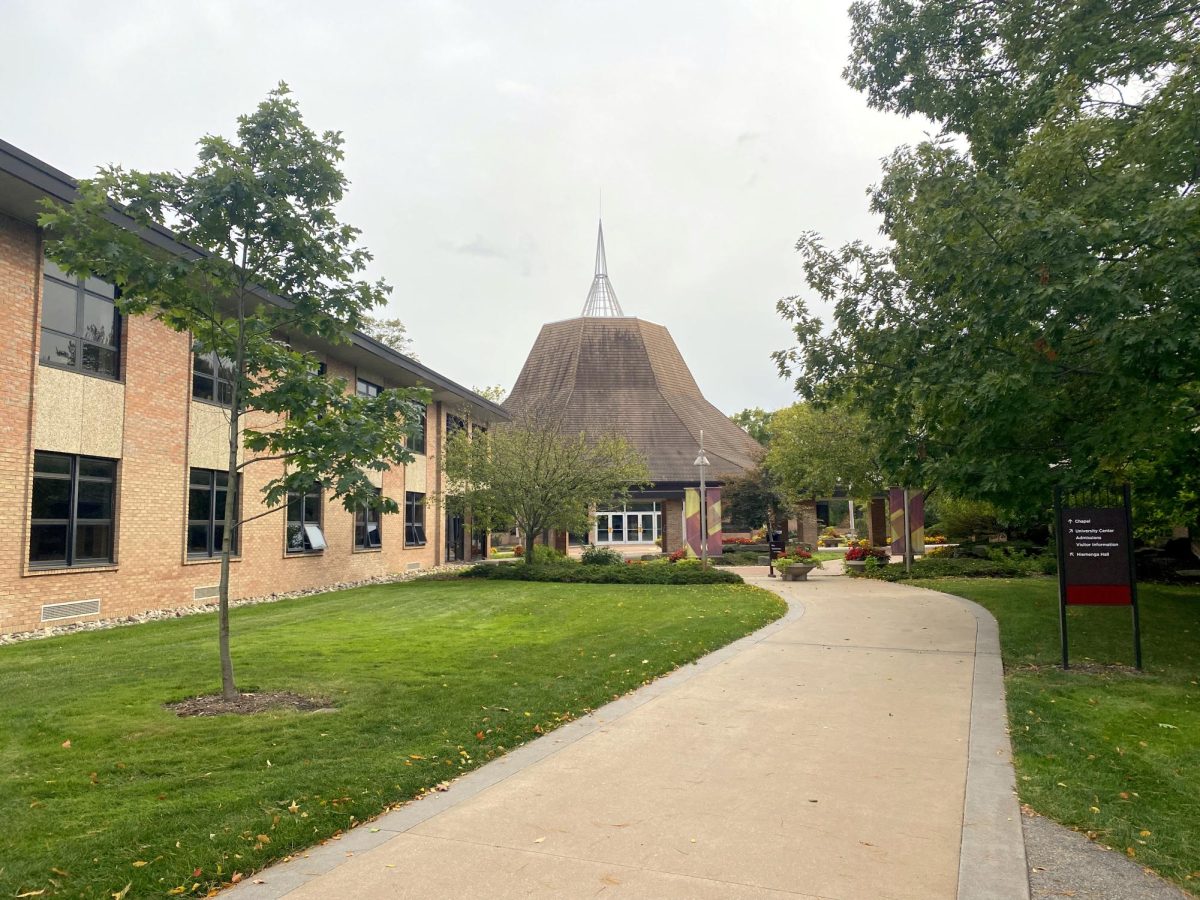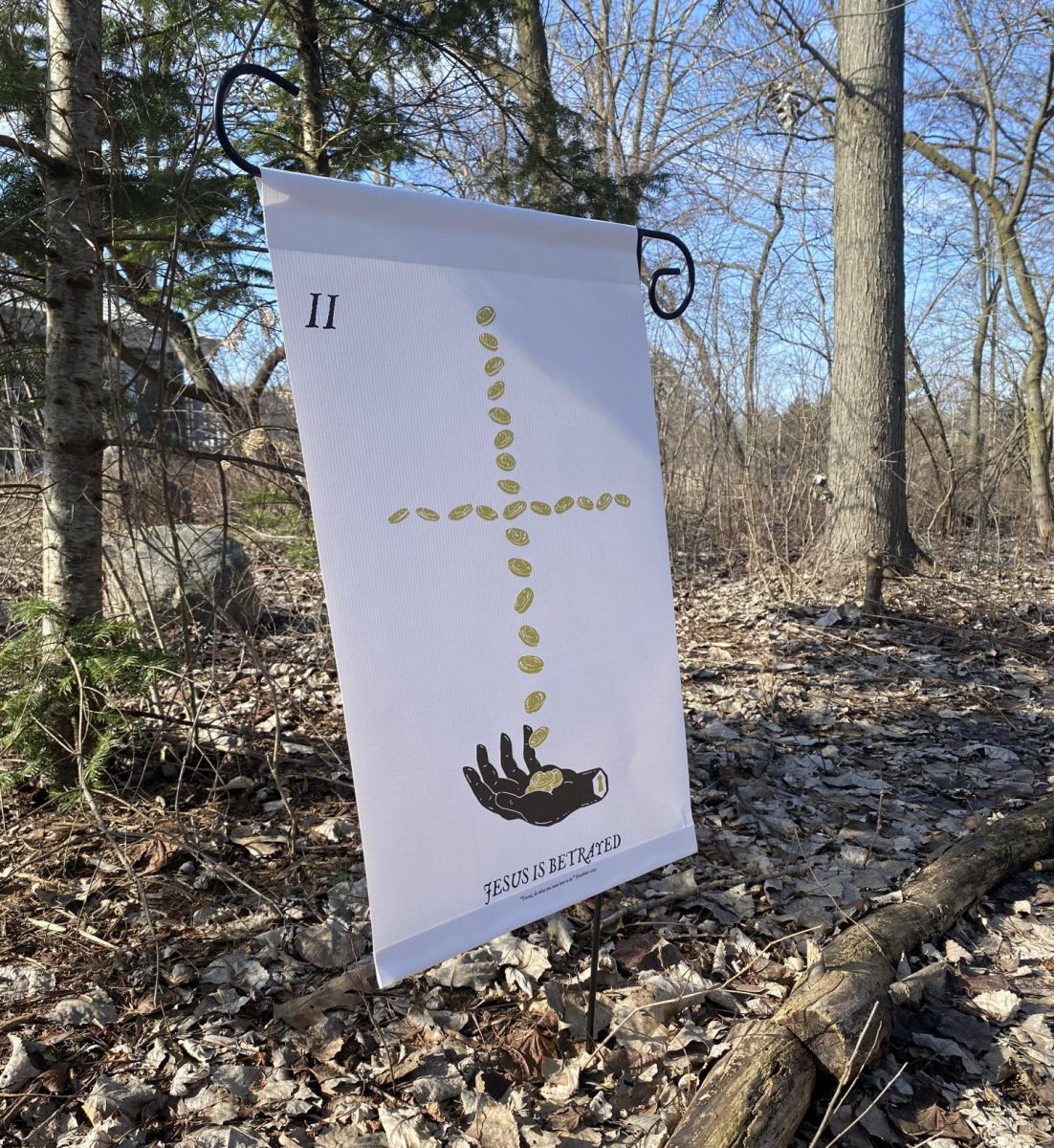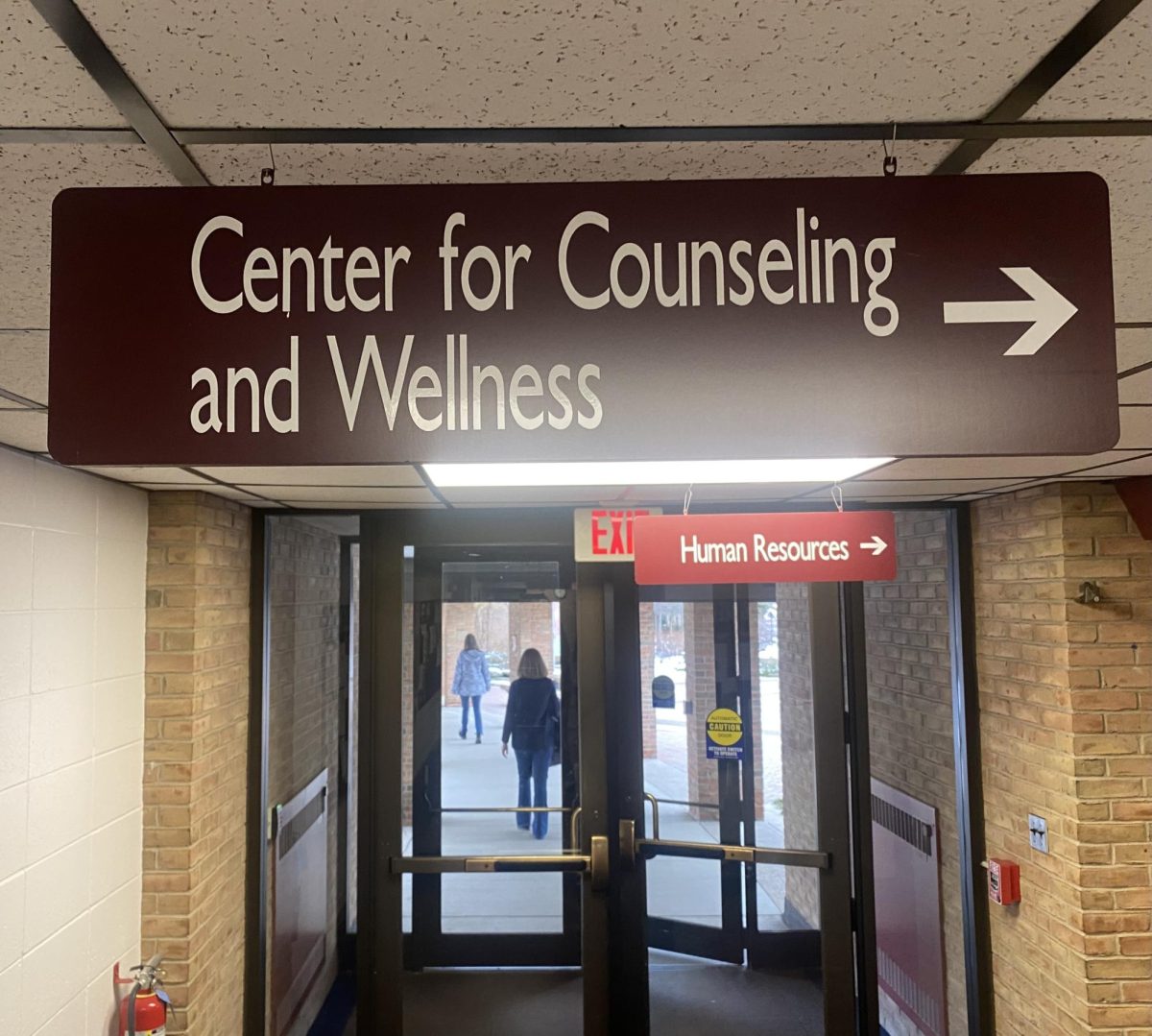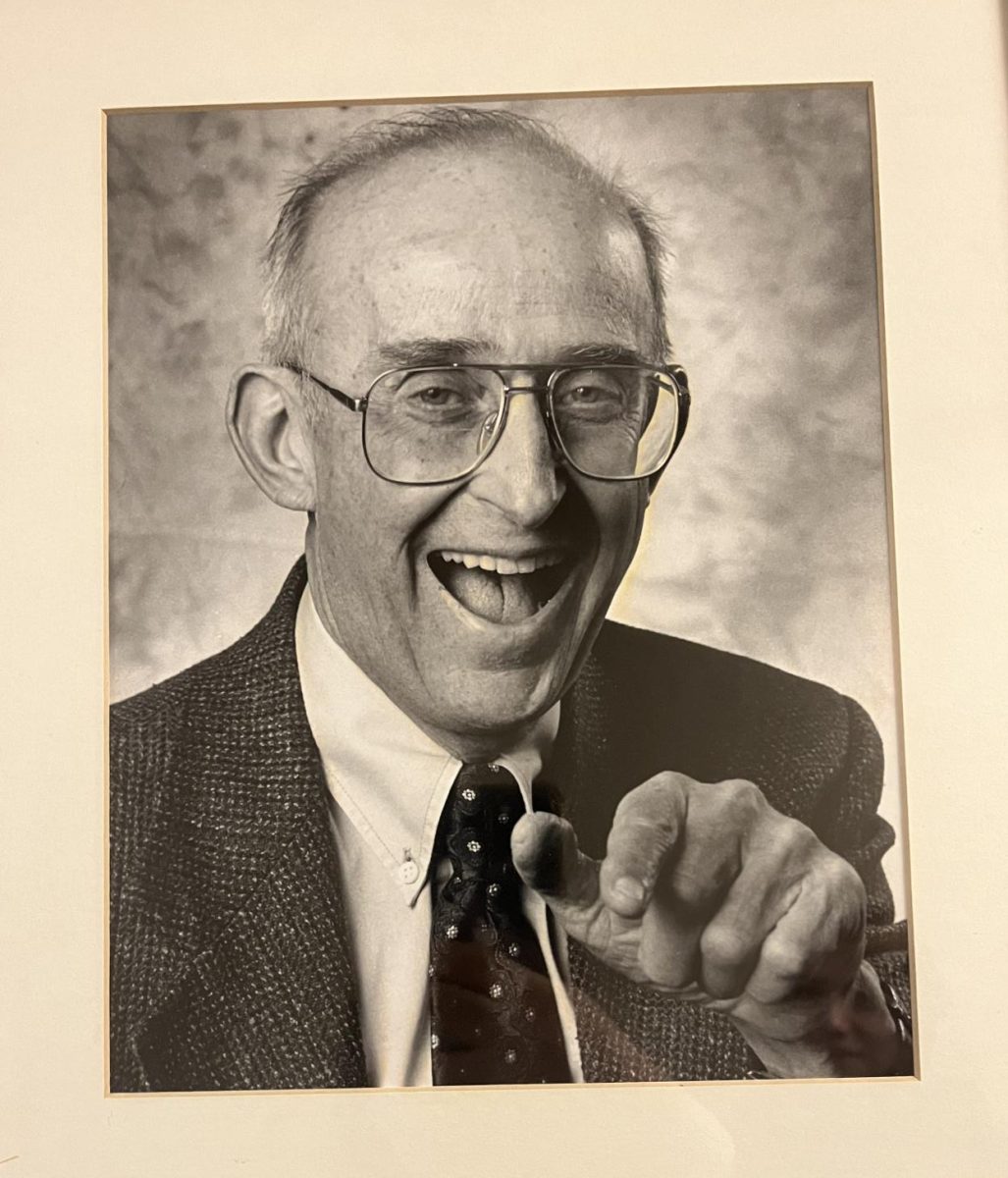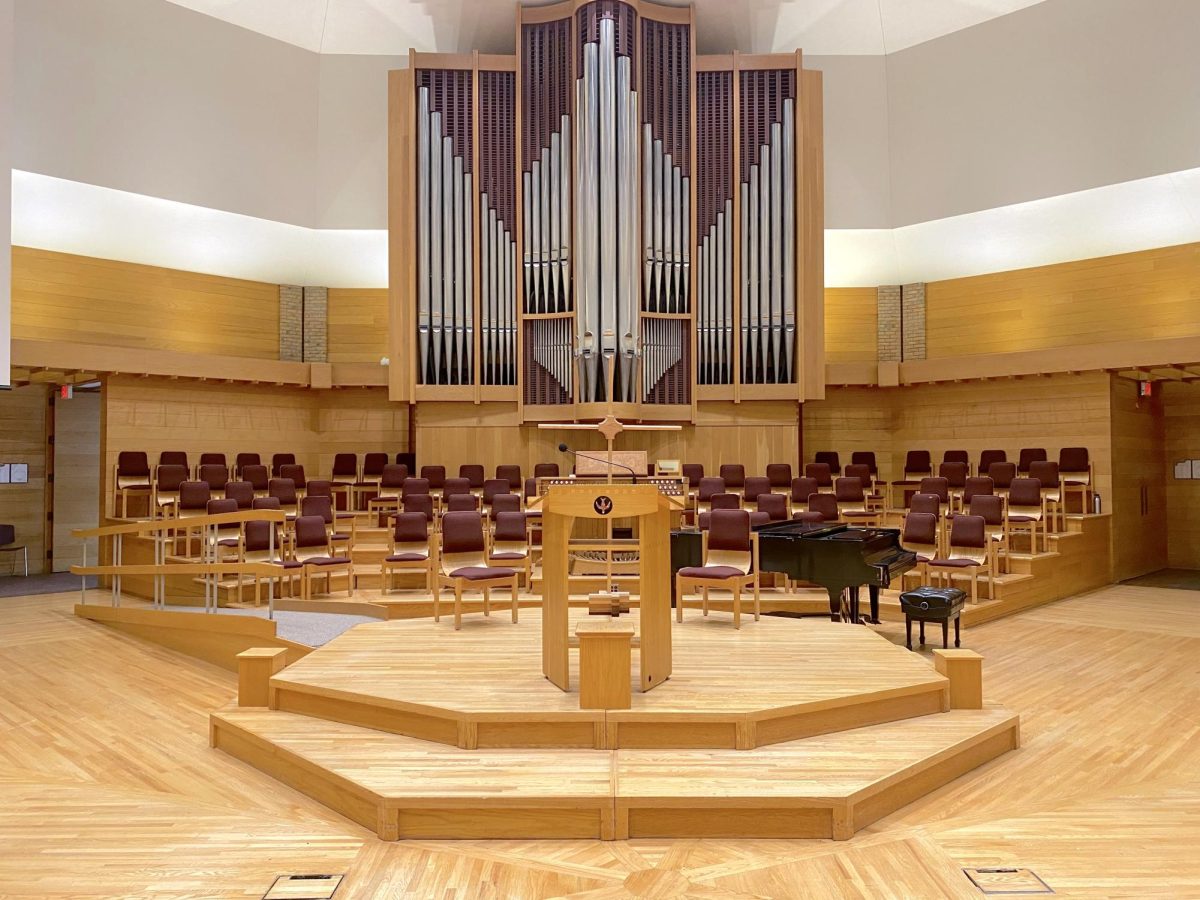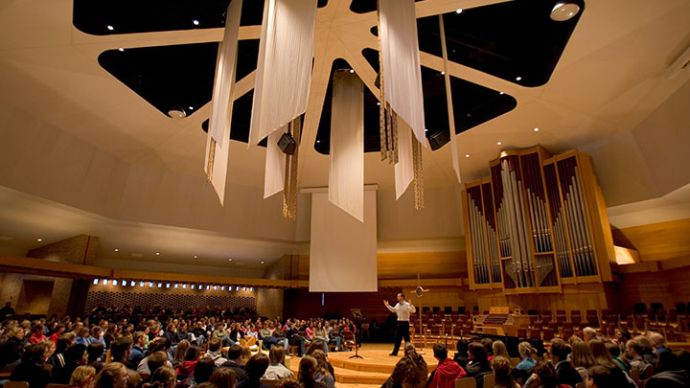At the history colloquium on Business and Religion on Wednesday, Oct. 19, Gloege spoke about his book “Guaranteed Pure,” which highlights the oft-missed connection between capitalism and conservative fundamentalism.
Conservative fundamentalism, a traditional approach to Christianity, is often considered to be at odds with modern ideologies about same-sex marriage and Darwinian evolution. Ironically, according to Timothy Gloege of the Calvin history department, the fundamentalist movement used one of the greatest innovations of the modern era, free-market capitalism, to thrust their cause into the mainstream.
According to Gloege, in order to understand how these antithetical movements are connected, one needs to look no farther than Henry Parsons Crowell, a chairman of the board of trustees of Moody Bible Institute (MBI) in Chicago and founder of the Quaker Oats Company.
Though no movement is a monolith, Gloege argues that MBI can serve as a proxy for the evangelical movement: it is “a virtual Vatican of fundamentalism.” However, this was not always the case. Until Crowell came to power, MBI was run like a mom-and-pop shop; Crowell “transformed […] it into a modern corporation.”
Crowell had his headquarters, but he needed a way to disseminate his theology. His central beliefs included that a personal relationship with Christ was paramount to the Christian faith, and that scriptural interpretation must be done through a dispensational lense (in other words, that certain passages of scripture only apply to certain periods of time). “The Fundamentals” would be his pipeline.
While the publication was started as a periodical by Lyman Stewart, an oil magnate who was no friend of John D. Rockefeller, Crowell had a different vision. He wanted “The Fundamentals” to be seen as “as a reference work to be studied.” This would be the “clearinghouse for Moody theology” he had always wanted.
The problem was that a denominational signature was seen as prerequisite to being orthodox, and Crowell wanted to avoid denominational interests. The only way to solve his problem was to avoid the denominations, which required democratic capitalism to effectively accomplish. Gloege provided a side-by-side comparison of the businesses practices Crowell used at The Quaker Oats Company and at “The Fundamentals” to show how each organization accomplished the same goal.
There are five stages goods go through in the capitalist system. First there are raw materials, and these materials are processed by manufacturers who then sell the products in large quantities to wholesalers. Wholesalers sell the products in smaller quantities to individual retailers, who provide them for their local customers. As the head of the Quaker Oats, Crowell bypassed wholesalers and advertised directly to the local customers. These customers demanded their individual retailers stock Quaker Oats, who in turn demanded Quaker Oats from their wholesalers. The system was turned upside-down.
Crowell used this same strategy to avoid the denominational headache “The Fundamentals” was experiencing. In this situation, the wholesalers are the corporate denominations, and the individual retailers are the churches or parishes. Crowell sold his publication directly to the parishioners, who internalized its teachings and demanded that type of orthodoxy from their churches, who demanded it from their denominational leaders.
This play succeeded and Crowell accomplished his goal of “uniting these conservatives together across and within denominations against the influence of modernist theology” promoted by the liberal Protestants. Liberal Protestantism was seen as anti-orthodox because of its desire to integrate modern scientific advances into their religious beliefs.
Crowell succeeded in spreading his “pure” form of religion to a national audience and was instrumental in giving birth to a conservative fundamentalist movement that is still politically active, and immensely influential, to this day.




